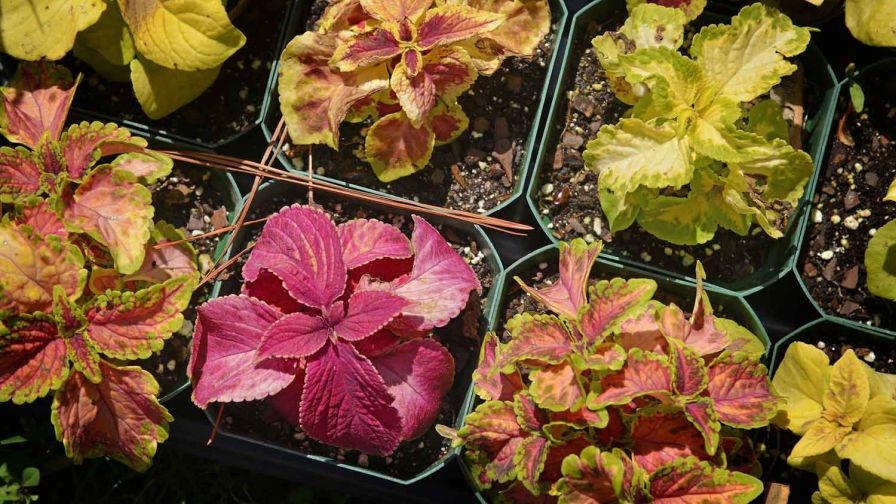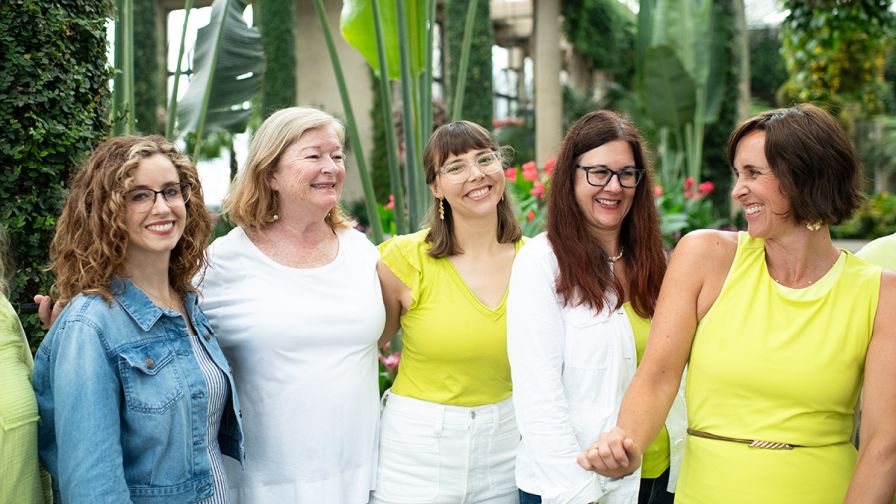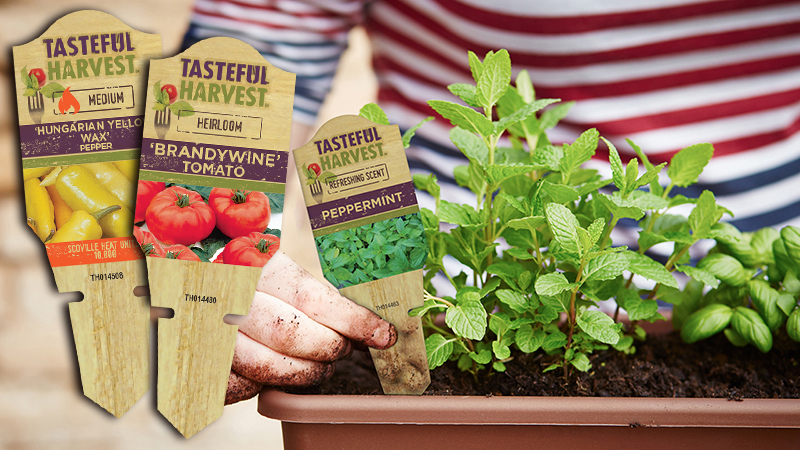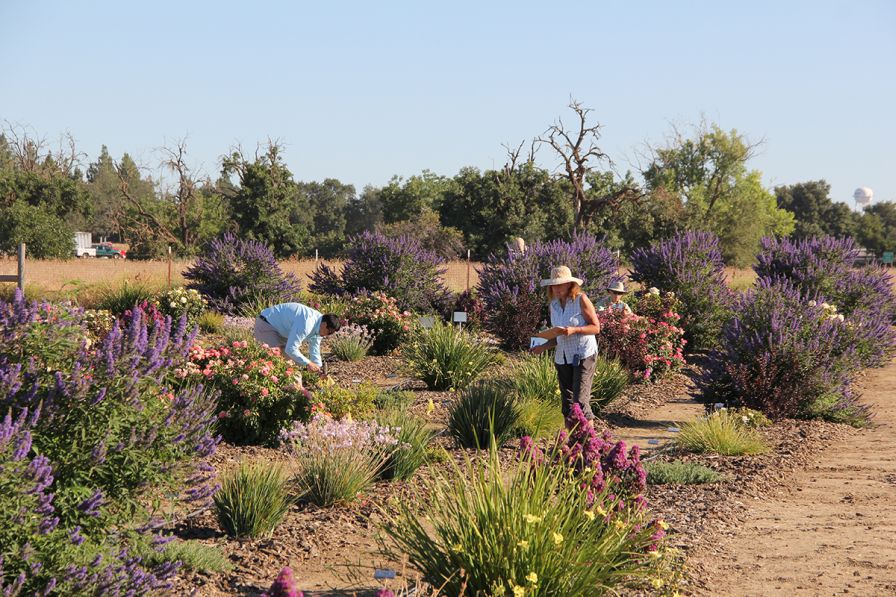Meet Jenny Ryals, Winner of the Richard T. Meister Scholarship
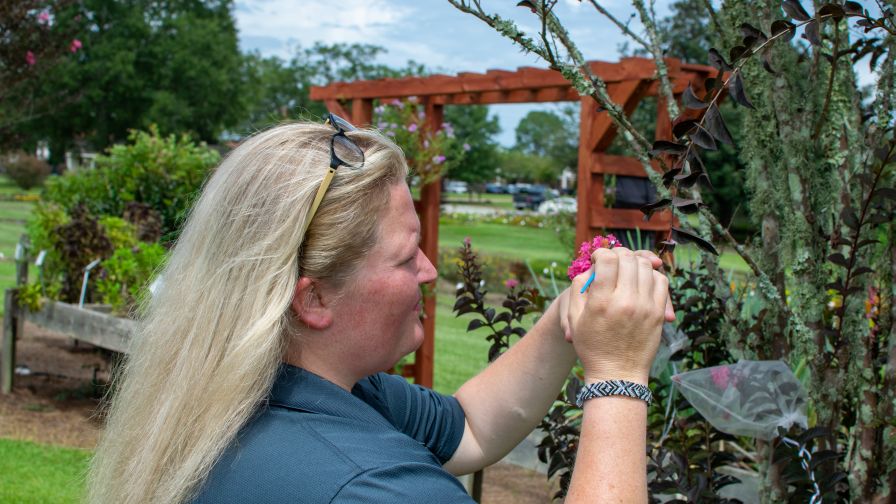 As part of Meister Media Worldwide’s ongoing commitment to building the future of the industry, it awards one horticulture student with the Richard T. Meister Scholarship, in partnership with the American Floral Endowment. This year, Jenny Ryals of Mississippi State University (MSU) is the recipient of the Richard T. Meister Scholarship.
As part of Meister Media Worldwide’s ongoing commitment to building the future of the industry, it awards one horticulture student with the Richard T. Meister Scholarship, in partnership with the American Floral Endowment. This year, Jenny Ryals of Mississippi State University (MSU) is the recipient of the Richard T. Meister Scholarship.
Ryals is a Ph.D. candidate at MSU who plans to graduate in December 2024. When Ryals started her bachelor’s degree at MSU, she planned to study agricultural sciences with a focus on animal science. She wanted to become a veterinarian or a cattle reproductive specialist. She also worked in entomology as a student, researching insects in row crops. One of her professors, Dr. Angus Catchot, nudged her in the direction of a master’s degree in entomology. Ryals switched her major to agricultural science and graduated early so she could pursue the master’s with Dr. Catchot.
She completed more than a year of her master’s degree program, then took a job at the Bureau of Plant Industry, which is part of the regulatory sector at the Mississippi Department of Agriculture. She regulated animal feed and invasive pests for a year while working on her master’s.
Ryals moved with her husband when he got a job in southern Mississippi. She took a position with the South Mississippi Branch Experiment Station, which is part of the Coastal Research and Extension Center of MSU. Dr. Patricia Knight asked if Ryals had an interest in horticulture, which she did.
“At that point, I knew nothing about horticulture. That was five years ago,” Ryals says. “I had been working and studying corn agronomy. I only really needed to know five major crops, so jumping into horticulture was a bit of a learning curve. Since I started working and studying horticulture, I’ve learned that it’s so vast. You can do everything. With my degree, I’m mostly working with ornamentals, but I also get to work in vegetables, fruit, and floral design. I think all my changes happened for a reason. I truly feel I’m where I’m supposed to be.”
Greenhouse Grower caught up with Ryals to hear more about her future in horticulture.
GG: What are your career goals?
Ryals: “In the short term, my goal is graduating. Long term, I’ve only seen myself doing academics. I don’t have a preference. I love Extension, research, and teaching. Academia is my calling. I have a passion for Mississippi State. I would love to stay at Mississippi State, but I’m not closed off to other things as well. When people talk about a place being like a family, Mississippi State has been that family for me. I have always had the right people in my life and in my corner at the right time.”
GG: What are some of your favorite things to do in the horticulture industry?
Ryals: “I love working with growers and farmers and helping people who have a puzzle. We go to their farm, they tell us about a problem they’re having, and we solve it. I like taking methods that they’re currently using and improving upon them, such as helping a nurseryman reduce his labor or increase the price of his crop. Also, anything related to entomology, plant pathology, and pest problems are things that I gravitate toward. That’s part of my Ph.D. project.
We’re looking at loropetalum gall and trying to irradiate it. I thought if we irradiated loropetalum plants that had gall, we could kill the bacteria but leave the plant unchanged. Then we could have a way to provide clean stock to growers and nurserymen. The methods used could potentially be good for other crops. Loropetalum might not be the most economically beneficial crop to do this on, but you have the citrus industry fighting citrus greening, there’s boxwood blight, botrytis, and many others. When you think about irradiation, it’s not new. Fruits and vegetables get irradiated all the time, but it’s not typical for ornamental plants. There is an opportunity there to make sure you have clean stock going out to other nurseries.”
GG: How does the Richard T. Meister scholarship aid you in your education?
Ryals: “Even though I’m a graduate student, I still have educational expenses that are not covered. My husband finished his bachelor’s recently, and we have his student loans plus mine. I also have a 2-year-old, so anything that I can get to handle my educational expenses and not put burdens on them alleviates stress and takes that weight off my shoulders. It allows me to focus on my studies and not wonder if we will be able to pay bills. It’s a huge weight lifted.”
GG: What impact would you like to have on the horticulture industry?
Ryals: “If I had to sum up my goal in two words, it would be helping people. I want to help people as much as I can, such as helping a grower make their business more profitable and more streamlined. Also, if I can get the younger generation interested in horticulture, that’s the ultimate goal.”




